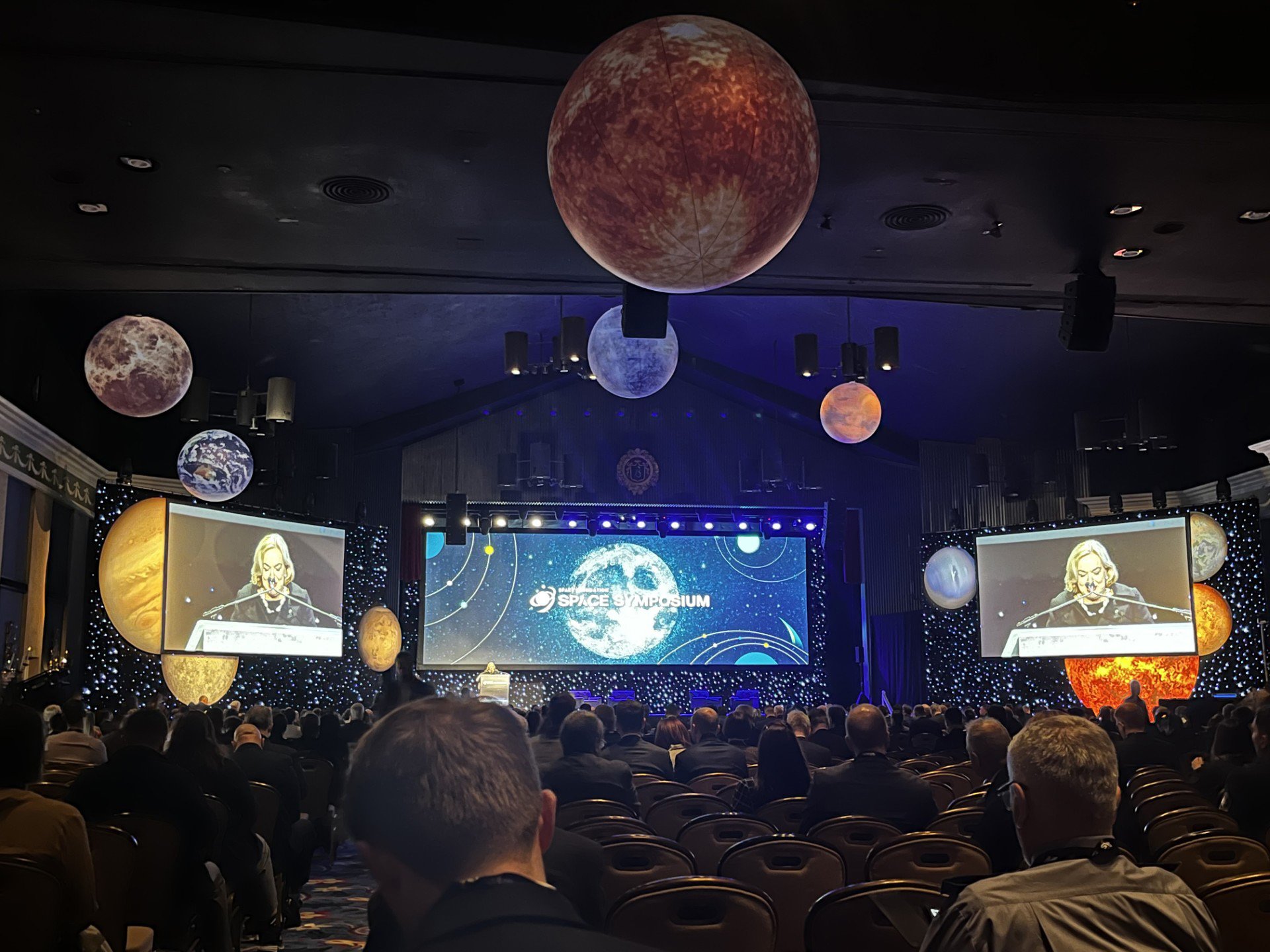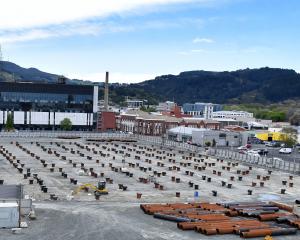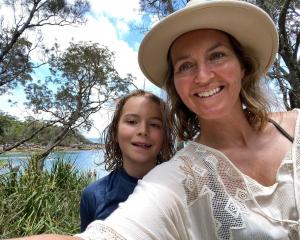

That’s how Ms Collins introduced herself at the Space Symposium in Colorado Springs last month. And it is not joke: as the fourth-most frequent launcher of rockets in the world last year, New Zealand does have a clear role in the commercial space race.
We are still a minnow compared with major global players — 109 rockets launched in the US, 67 in China and 19 from Russia — but Rocket Lab plans more than 20 launches next year and our very first commercial spaceport Tāwhaki in Christchurch is now open.
United Machinists was one of six companies that formed the New Zealand space symposium delegation. Held over four days, the symposium hosts over 10,000 government, commercial and space industry delegates from 40 different countries.
When I’ve mentioned that I was attending a space conference there have been equal parts fascination and bewilderment — what is New Zealand doing in space, and why would I be there? We’re just a little machine shop from Dunedin.
It’s clear that New Zealand’s position in the space market isn’t mainstream knowledge yet — so I’d like to dedicate a few articles to unwrapping it and bringing the community along for the ride.
As a starting point, I will shine a light on the New Zealand companies which joined me and what they’re doing to build an industry for future generations.
- Tāwhaki Aerospace Centre in Christchurch isn’t an airport, it’s a spaceport. That’s right: we have landed in the future. A partnership between the government and the Wairewa and Te Taumutu Rūnanga, Tāwhaki is already approved for horizontal launches and will soon offer vertical launch capacity.
- Dawn Aerospace, also Christchurch based, is a space transportation company building a reusable spaceplane, which recently flew three times in three days under rocket power. The company already has serious space credentials, through its propulsion systems for satellites — its thrusters have been deployed on all SpaceX Transporter missions to date.
- Auckland-based Zenno Astronautics is revolutionising space movement through the untapped energy of super magnets. Zenno is also set to deliver the first electromagnetic shielding of spacecraft, shielding that will also protect the humans inside from radiation damage.
- RAM3D specialises in metal 3-D printing for rocket engines, launch vehicles and various other aerospace industry components and parts. It is the largest contract 3-D printing supplier in Australasia, all from its home base of Tauranga.
- For more than 40 years Auckland firm Rakon has been making frequency-control products and timing solutions for the space, defence and telecommunications industries. It manufactures crystals and oscillators to meet the most extreme space challenges — temperatures, space radiation, vibration and massive G-forces. It has supported over 50 international space programmes.
I’ll admit I was surprised that United Machinists was invited — but also thrilled the government is recognising the important role manufacturing engineering plays in providing the industrial capability necessary to manufacture, launch and maintain spacecraft and associated technology.
New Zealand is the first country to offer fully private orbital launch services, predominantly thanks to Rocket Lab and its supply chain of over 1000 of local companies that help make every launch happen.
This was my third official trade mission, sixth if you include participation in NZ exhibits at major conferences. As a small company, if I were to attend a conference on my own I’d fade into obscurity. Key stands fetch hundreds of thousands of dollars — attendance alone for Colorado Springs was $US6000( $NZ9980).
Participating in a delegation, attending government-organised networking events and round tables, and to co-exhibiting on an NZ Inc stand, we get what would otherwise be unachievable access and visibility.
What I’ve learnt from these trade missions is that New Zealand has significant influence globally beyond our scale. While we may be the smallest kid in the playground, if we have a minister or chief of defence out front, everyone wants to be our friend.
Ms Collins and her team’s grasp of what all our companies did and her ability to talk to our respective strengths and weave us into speeches and conversations is absolutely invaluable.
As a small manufacturing business I know that the opportunity is not just about promoting United’s services — but showcasing a wider New Zealand manufacturing capability. That’s why I go to these things, even if I feel a bit stupid compared with the literal rocket scientists around me.
At United we like to say we are manufacturing possibilities. Imagine if before my time is up I’d be able to jump on a space plane from Tāwhaki for tourist space flight.
Or imagine if my son’s generation produces New Zealand’s first cohort of astronauts.
- Sarah Ramsay is chief executive of United Machinists.











